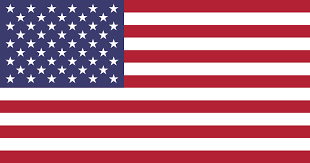If you’re working with new recruits, preparing troops to relocate, helping couples work through balancing family needs with military life or involved in the transition from a military to civilian life, Money Habitudes belongs in your toolbox. It helps make discussing money non-threatening, engaging and fun and leads to effective outcomes.
Whether service members are mandated to take a financial education class or just want to learn more, they like playing a game instead of sitting through a lecture or PowerPoint presentation. Since Money Habitudes feels like a game, they relax and get engaged. Being jargon free, non-judgmental and non-threatening, there is no shame and no blame. Consequently, they are more interested and open to learning the information and skills they need to get out of debt and manage their money successfully. They are more likely to show up to subsequent classes and follow-through.
Family advocates and support staff see the more difficult challenges of military lifestyles. Money or the lack of it, can be the emotional trigger for marital discord, abusive or inappropriate behavior on the job and in their personal lives, suicide and an increase in substance abuse. Money Habitudes is often an effective activity to help the service member connect the dots between their relationship with money and the life issues they are facing.
Those serving the military members represent people from different circumstances, with unique biases and behaviors. Money Habitudes is an easy, fun activity to raise staff awareness about their own money personalities. Those insights can help them be more effective when working with others.

Madeleine Greene, Military Family Life Counselor-personal finance at Zeiders Enterprises and contractor for the Department... Read More
In his work leading a course for couples intending to divorce, Kent Thompson -- financial... Read More
The U.S. Marine Corps customized Money Habitudes materials to be used as the foundation of... Read More
Madeleine Greene, Military Family Life Counselor-personal finance at Zeiders Enterprises and contractor for the Department... Read More
In his work leading a course for couples intending to divorce, Kent Thompson -- financial... Read More
The U.S. Marine Corps customized Money Habitudes materials to be used as the foundation of... Read More
Madeleine Greene, Military Family Life Counselor-personal finance at Zeiders Enterprises and contractor for the Department... Read More
I’ve used the cards for years and just started to use the online version. They are easy to use, the report was easy to read, colorful and the questions, advantages and challenges were clear and easy to read on the screen. I like it!
Kimberly Eng AFC, Family Resiliency Coordinator, Fort Bragg, NC
Besides personal finance programs offered by the military, Money Habitudes cards and online versions are used in programs offered to military families throughout the US by university extension agents, non-profits, churches and military spouse mentor programs. They include one-on-one financial counseling and classes in financial management, strengthening relationships and family, and programs for teens.
I’ve used the cards for years and just started to use the online version. They are easy to use, the report was easy to read, colorful and the questions, advantages and challenges were clear and easy to read on the screen. I like it!
Kimberly Eng AFC, Family Resiliency Coordinator, Fort Bragg, NC
Besides personal finance programs offered by the military, Money Habitudes cards and online versions are used in programs offered to military families throughout the US by university extension agents, non-profits, churches and military spouse mentor programs. They include one-on-one financial counseling and classes in financial management, strengthening relationships and family, and programs for teens.
I’ve used the cards for years and just started to use the online version. They are easy to use, the report was easy to read, colorful and the questions, advantages and challenges were clear and easy to read on the screen. I like it!
Kimberly Eng AFC, Family Resiliency Coordinator, Fort Bragg, NC
Besides personal finance programs offered by the military, Money Habitudes cards and online versions are used in programs offered to military families throughout the US by university extension agents, non-profits, churches and military spouse mentor programs. They include one-on-one financial counseling and classes in financial management, strengthening relationships and family, and programs for teens.
Let’s talk about being successful. Now that most New Year’s resolutions have faded into a distant memory, choose one little thing that you know you can accomplish and do it. Small successes feel much better than frustration or guilt for not accomplishing an unattainable goal. Plus, small successes lead to big successes.
Let’s talk about messages from home. One day when I was eight years old, my mom sent me to the corner grocery store to buy a few things. On the way home I managed to lose $10. We retraced my steps but the money was nowhere to be found. My mother just sat down and wept.
Let’s talk about how you can take charge to get the best deal when you want a loan. You may assume that a Realtor™ has the connections and expertise to get you the best deal and that may be true, but not necessarily.
What would it take for you to feel financially secure? And, have you shared your thoughts with your spouse? This simple conversation could be the first step to finding a workable solution to disagreements about money. It’s common for husbands and wives to define security quite differently and if their definitions are miles apart, it can mean a bumpy road ahead.